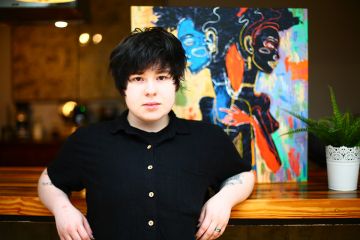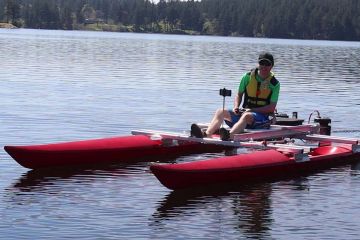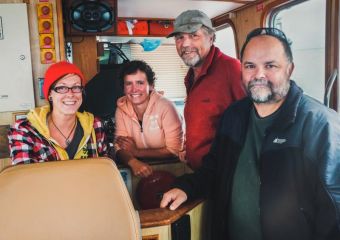
Robotics artist plots course for the future
Prior to arriving at UVic, Sie Douglas-Fish had never even left their 2,000-person hometown before—but now, as they graduate with a BFA in Visual Arts, they’re not only already living and working in a city of 4.2 million but also had their art featured on national TV and have a piece hanging in the Montreal offices of Amazon Web Services.



